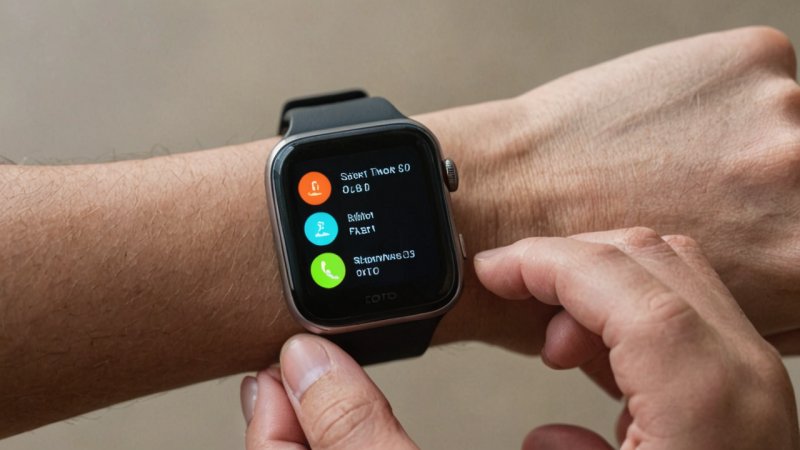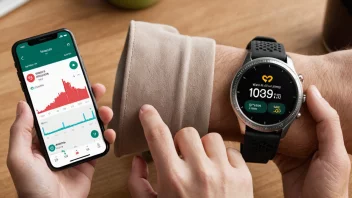In an increasingly connected world, personal safety has become a top priority for many men. With the advent of wearable technology, keeping track of your health and safety has never been easier. Two of the most popular categories of wearables are smartwatches and fitness trackers. While both devices can offer benefits for personal safety, they have distinct features, functionalities, and drawbacks. In this article, we will explore the pros and cons of smartwatches and fitness trackers, helping you decide which option best suits your lifestyle and safety needs.
Understanding Smartwatches
Smartwatches are multi-functional devices that not only tell time but also connect to your smartphone and offer a range of applications. They are designed to enhance everyday life by integrating technology into daily activities.
Pros of Smartwatches
- Versatile Functionality: Smartwatches come equipped with a variety of apps that allow users to track fitness, receive notifications, make calls, and even control smart home devices.
- GPS and Navigation: Many smartwatches include built-in GPS, which can help users navigate unfamiliar areas, making them a valuable tool for outdoor enthusiasts.
- Emergency Features: Some models come with SOS features that allow users to send their location to emergency contacts in case of danger.
- Health Monitoring: Smartwatches often include advanced health metrics such as heart rate monitoring, ECG readings, and sleep tracking.
Cons of Smartwatches
- Battery Life: The multifunctionality of smartwatches can lead to shorter battery life compared to simpler devices.
- Price Point: Smartwatches tend to be more expensive than fitness trackers, which can be a deterrent for some users.
- Complexity: For those who prefer straightforward devices, the multitude of features can be overwhelming.
Understanding Fitness Trackers
Fitness trackers are designed primarily to monitor physical activity and health metrics. They are streamlined devices focused on fitness rather than multifunctional capabilities.
Pros of Fitness Trackers
- Affordability: Generally, fitness trackers are more budget-friendly than smartwatches, making them accessible to a wider audience.
- Battery Life: With fewer features, fitness trackers tend to have longer battery life, allowing for extended use without frequent charging.
- Simplicity: The straightforward design makes them user-friendly for those who want essential tracking without additional distractions.
- Activity Tracking: Fitness trackers excel in tracking steps, calories burned, sleep patterns, and heart rate, making them ideal for fitness enthusiasts.
Cons of Fitness Trackers
- Limited Functionality: While they excel in fitness tracking, fitness trackers lack many of the sophisticated features of smartwatches, such as app integration and notifications.
- No GPS: Most basic models do not include built-in GPS, which may limit outdoor activity tracking without a smartphone.
- Less Comprehensive Health Monitoring: Fitness trackers typically provide fewer health metrics compared to smartwatches.
Comparison of Safety Features
When it comes to personal safety, both smartwatches and fitness trackers offer unique advantages. Understanding these can help you make a more informed choice.
Emergency SOS Features
Many smartwatches come equipped with emergency SOS features that can alert emergency contacts and provide location data. Some fitness trackers, while more limited, may also have basic alert functions.
Location Tracking
Smartwatches with GPS capabilities allow for real-time location tracking, which can be critical in emergencies. Fitness trackers typically rely on a paired smartphone for location services, which may not be as reliable in urgent situations.
Health Monitoring
Smartwatches offer advanced health monitoring options that can detect anomalies in heart rhythms and alert users, whereas fitness trackers usually focus on basic health metrics.
Which One is Right for You?
Your choice between a smartwatch and a fitness tracker ultimately depends on your lifestyle, budget, and specific needs regarding personal safety. If you are looking for a multifunctional device that offers comprehensive health monitoring, GPS, and emergency features, a smartwatch may be the right choice for you. On the other hand, if you prioritize simple fitness tracking, affordability, and longer battery life, a fitness tracker may be more suitable.
Final Thoughts
In conclusion, both smartwatches and fitness trackers have their respective pros and cons when it comes to personal safety. By understanding their features and functionalities, you can make a choice that not only enhances your safety but also fits seamlessly into your lifestyle. Whether you opt for the advanced capabilities of a smartwatch or the simplicity of a fitness tracker, investing in wearable technology can significantly improve your personal safety and overall well-being.






